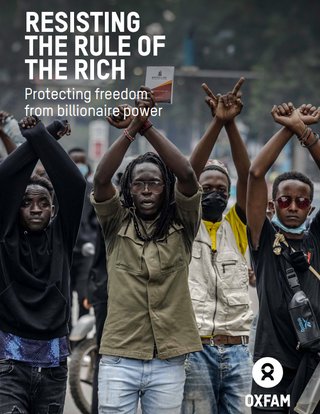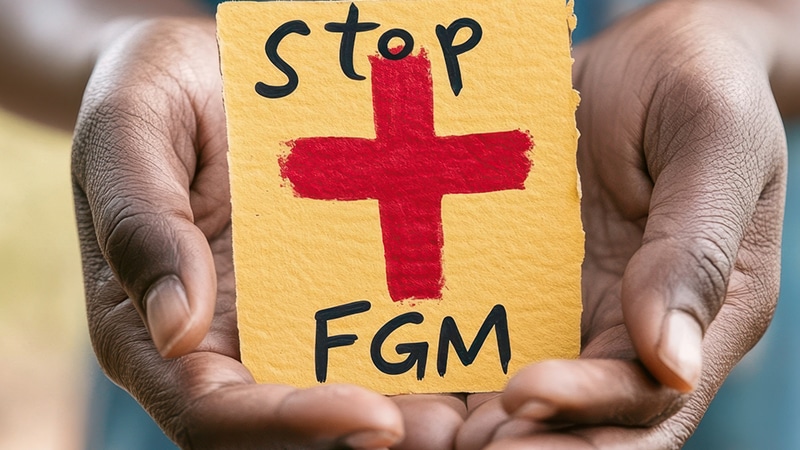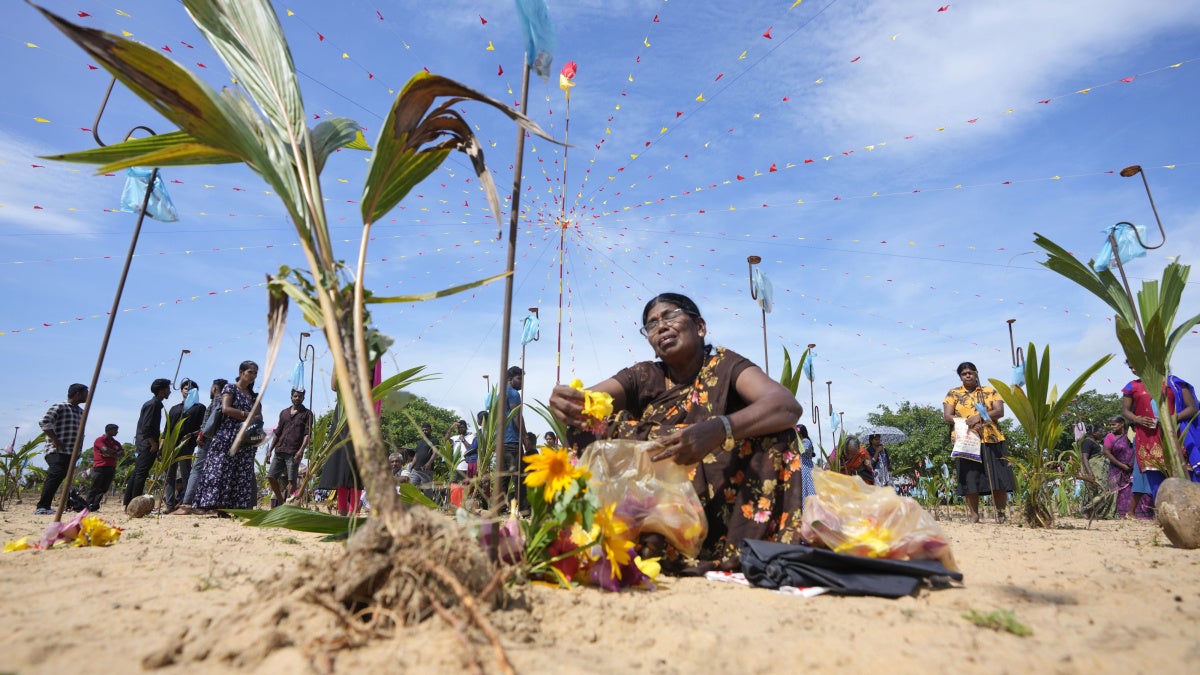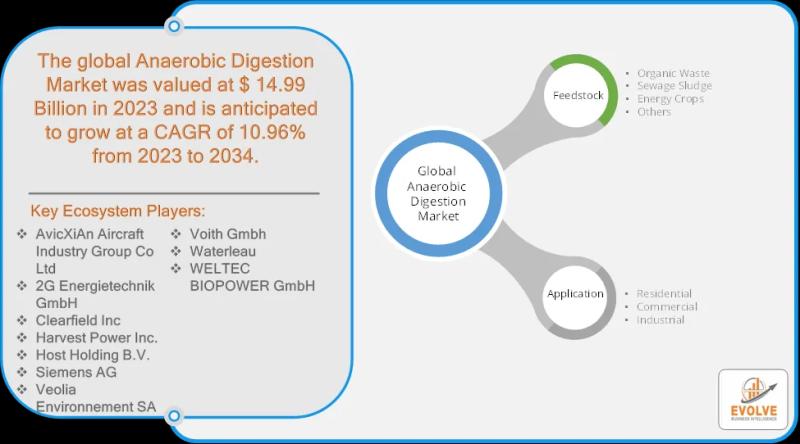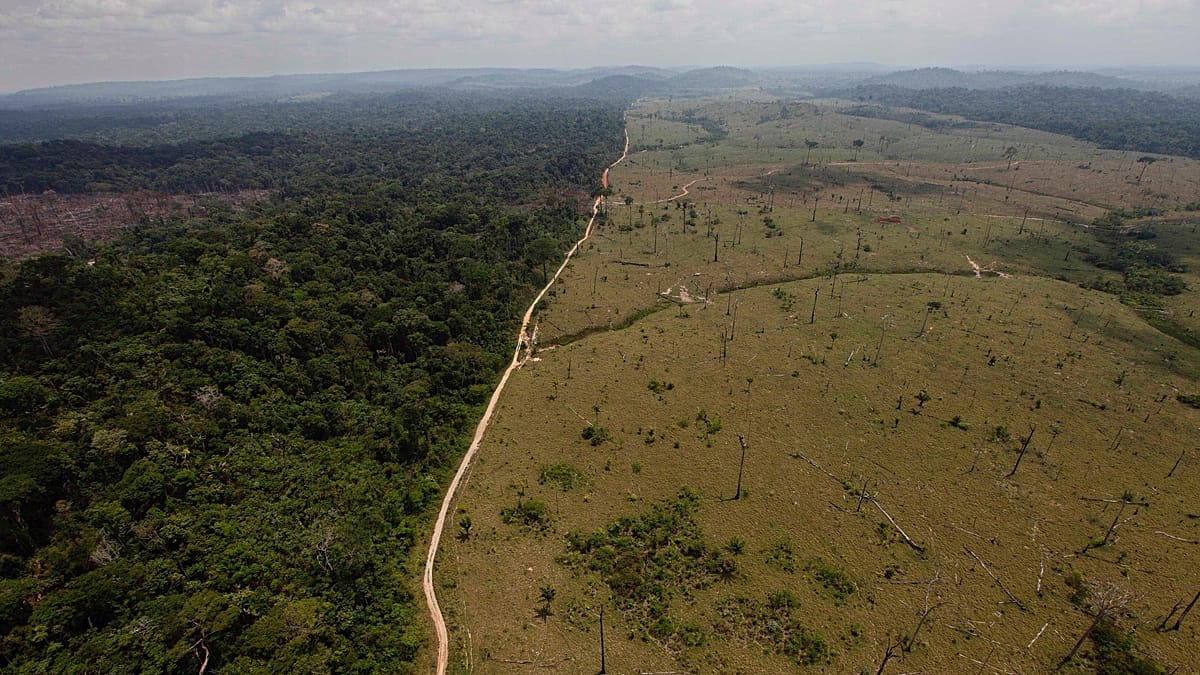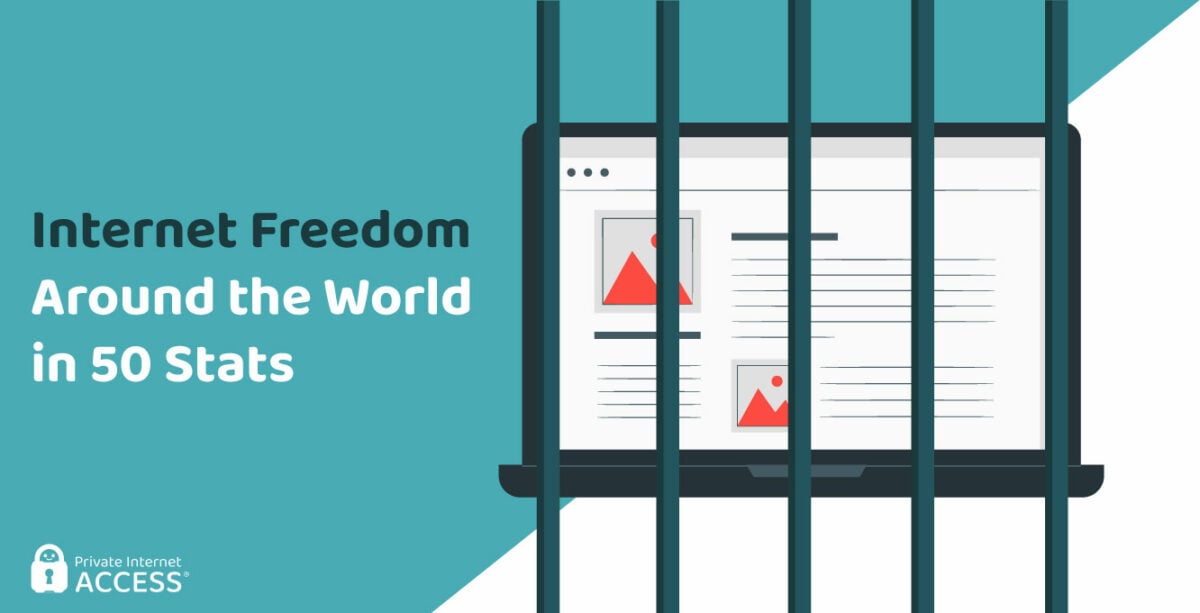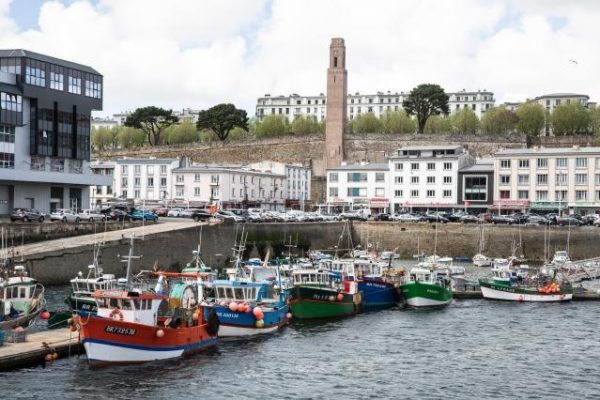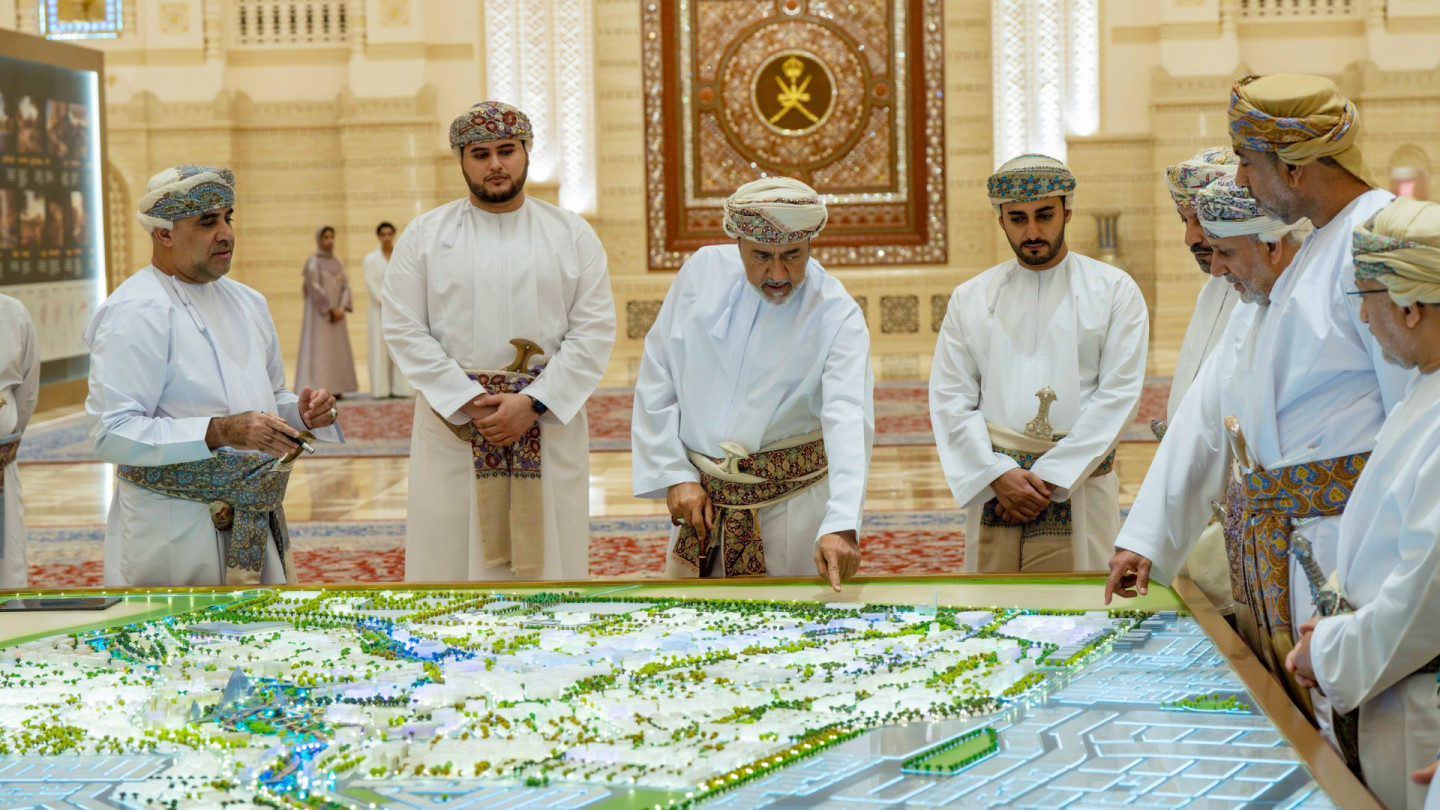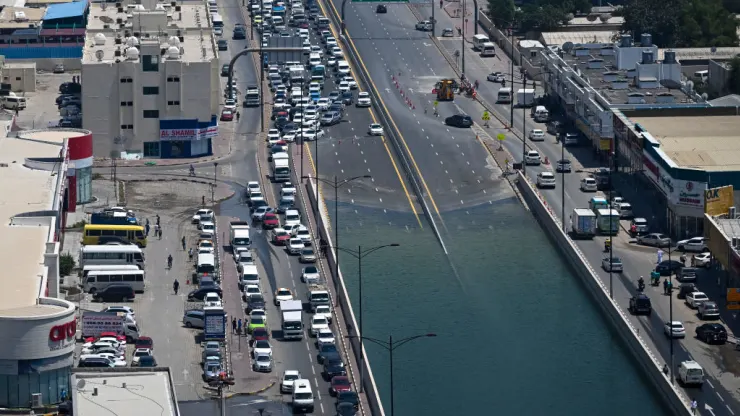Chinese fishing in West Africa: Responding to the environmental and social impacts – Atlantic Council
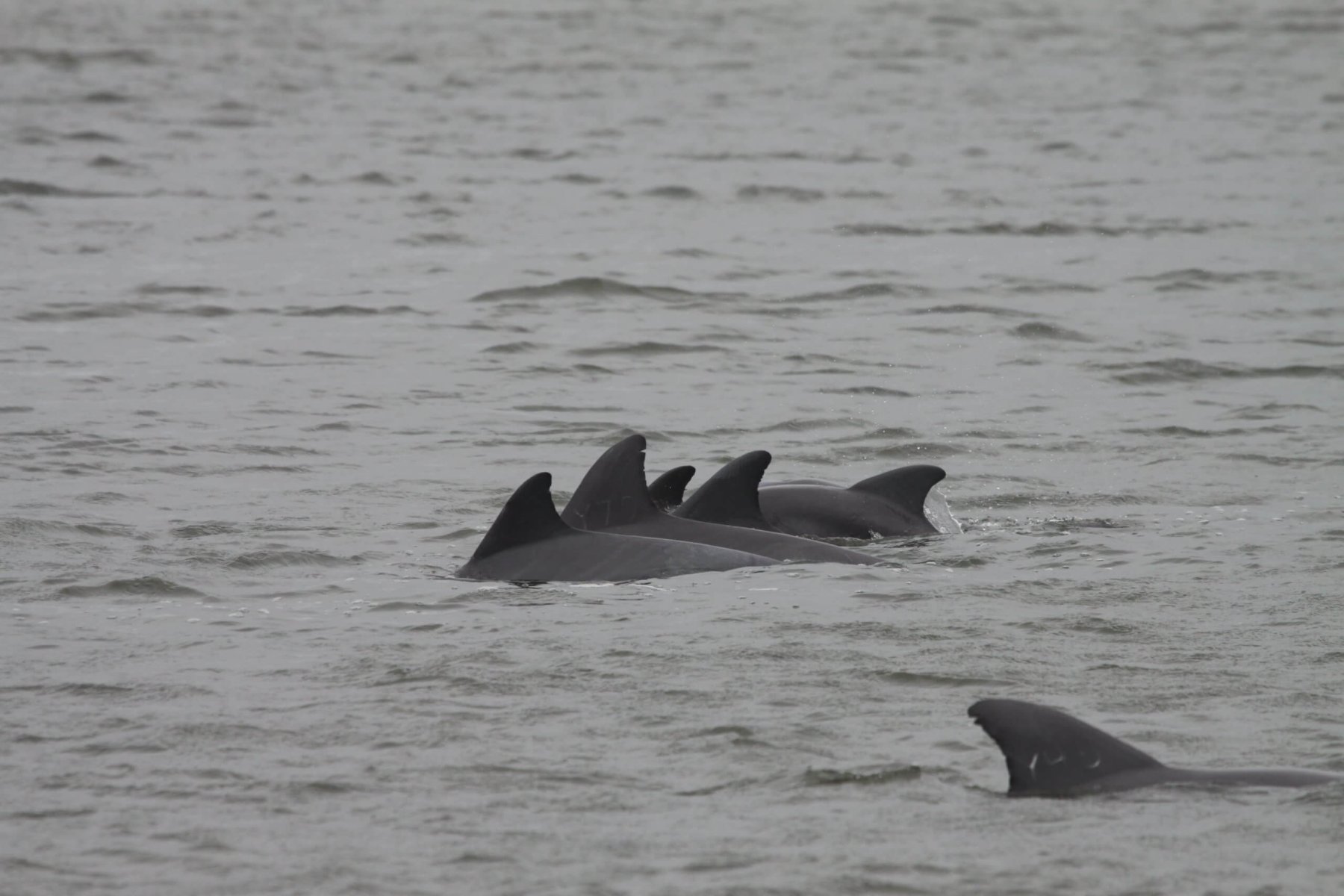
Report on the Environmental and Social Impacts of Chinese Fishing in West Africa in Relation to the Sustainable Development Goals
Executive Summary
Overfishing and associated industrial activities by Chinese state-backed and private companies in West Africa present a significant threat to regional progress on the Sustainable Development Goals (SDGs). These operations directly undermine SDG 14 (Life Below Water) through illegal, unreported, and unregulated (IUU) fishing, destructive practices, and marine ecosystem degradation. The resulting decline in fish stocks jeopardizes regional food security, contravening SDG 2 (Zero Hunger), and impoverishes coastal communities, hindering efforts toward SDG 1 (No Poverty). Furthermore, severe labor abuses and economic disruption challenge SDG 8 (Decent Work and Economic Growth), while pollution from associated mining and processing activities degrades water resources, impacting SDG 6 (Clean Water and Sanitation). Weak governance and corruption, which enable these activities, reflect a critical gap in achieving SDG 16 (Peace, Justice, and Strong Institutions). This report analyzes these multifaceted impacts and proposes policy recommendations aligned with the 2030 Agenda for Sustainable Development.
Background: Fisheries and Sustainable Development in West Africa
Fisheries and aquaculture are foundational to the socioeconomic fabric of West Africa, contributing significantly to regional GDP and providing the main source of animal protein for over 60 percent of households. This sector is crucial for achieving SDG 2 (Zero Hunger) and supporting local economies under SDG 8 (Decent Work and Economic Growth). However, the rapid expansion of China’s industrial fishing fleet, driven by the depletion of its domestic stocks, has introduced severe sustainability challenges. Chinese trawlers, which are larger and more technologically advanced than local artisanal vessels, exploit weak regulatory frameworks and limited enforcement capacity, leading to systemic overfishing and undermining the long-term viability of the region’s marine resources.
Analysis of Impacts on Sustainable Development Goals
SDG 14: Life Below Water
The activities of Chinese fishing fleets in West Africa are in direct conflict with the targets of SDG 14. Destructive and illegal practices are widespread, leading to severe degradation of marine ecosystems.
- Target 14.4 (End Overfishing, IUU): Hundreds of Chinese vessels engage in IUU fishing, often in prohibited coastal zones reserved for artisanal fishers. The practice of “saiko,” where industrial trawlers illegally catch and sell juvenile fish, directly undermines the sustainability of fish populations.
- Target 14.2 (Protect Marine and Coastal Ecosystems): The use of destructive methods like bottom trawling, dynamite, and illegal nets damages marine habitats. Pollution from vessels and fishmeal factories further degrades coastal water quality.
- Target 14.6 (End Harmful Fisheries Subsidies): Chinese state subsidies, low-interest loans, and tax exemptions provide its industrial fleet with an unfair advantage, promoting overcapacity and contributing to the overexploitation of fish stocks.
SDG 1 (No Poverty) & SDG 2 (Zero Hunger)
The depletion of fish stocks has a direct and devastating impact on the livelihoods and food security of coastal communities, reversing progress on SDG 1 and SDG 2.
- Threat to Livelihoods: Over 300,000 jobs in the artisanal fishing sector have been lost due to competition and resource depletion caused by industrial trawlers. This disproportionately affects small-scale fishers and women involved in fish processing and sales, pushing vulnerable households further into poverty.
- Food Insecurity: As fish become scarcer and more expensive, a critical source of protein is removed from the diets of millions, exacerbating malnutrition and food insecurity across the region.
SDG 8: Decent Work and Economic Growth
The operations of Chinese fishing companies undermine sustainable economic growth and violate fundamental principles of decent work.
- Economic Losses: IUU fishing results in significant economic losses for West African nations. Nigeria, for example, lost an estimated $70 million in 2018. This illicit activity drains national economies and prevents the reinvestment of revenues into sustainable development.
- Labor Abuses (Target 8.8): Reports from the Environmental Justice Foundation reveal systemic abuse of local crew members on Chinese vessels, including physical violence, starvation, and denial of medical care. These conditions are a severe violation of labor rights and the principles of decent work.
SDG 6 (Clean Water) & SDG 16 (Strong Institutions)
Associated industrial activities and systemic governance failures compound the negative impacts on the region’s natural resources and institutional integrity.
- Water Pollution (SDG 6): Runoff from Chinese-led mining operations contaminates major transboundary rivers like the Falémé and Bagoé with mercury, cyanide, and other pollutants, threatening freshwater ecosystems and public health. Waste discharge from fishmeal factories has led to the collapse of local lagoons.
- Governance Failures (SDG 16): The persistence of these destructive activities is enabled by weak governance. Key challenges include:
- Outdated legal frameworks that fail to address modern industrial fishing.
- Under-resourced enforcement agencies (navies, coast guards).
- Widespread corruption, with local elites and officials colluding with foreign operators.
- Lack of effective regional cooperation and implementation of existing policies.
Policy Recommendations for Achieving the SDGs
Strengthen Governance and Legal Frameworks (SDG 16)
- Implement Stricter Penalties: Enforce significant penalties, including fines, vessel confiscation, and blacklisting, for local and foreign entities involved in IUU fishing and environmental pollution. This will strengthen accountability and deter illegal activities.
- Revise and Update Policies: Modernize national fisheries and water resource laws to address industrial overfishing, pollution, and regulatory loopholes. The revision process must be inclusive, involving small-scale fishers and local communities to ensure equitable outcomes.
- Invest in Enforcement Capacity: Allocate resources to enhance the training and equipment of navies, coast guards, and port authorities to effectively monitor Exclusive Economic Zones (EEZs) and enforce environmental laws, thereby protecting national sovereignty and resources.
Improve Regional Monitoring and Surveillance (SDG 14 & SDG 17)
- Develop a Regional Real-Time Monitoring System: Establish a collaborative system integrating satellite data and mandatory Automatic Identification Systems (AIS) for all industrial vessels. This enhances transparency and provides authorities with the tools needed to combat IUU fishing effectively, in line with Target 14.4.
- Establish Public Reporting Systems: Empower civil society and local communities by creating anonymous reporting platforms to expose illegal fishing, pollution, and corruption. This democratizes oversight and builds political will for reform.
Promote Sustainable Fisheries Agreements (SDG 17)
- Empower Regional Bodies for Transboundary Cooperation: Strengthen the mandate of the Economic Community of West African States (ECOWAS) and the Sub-Regional Fisheries Commission (SRFC) to lead transboundary water management and harmonize fishery laws. This fosters regional partnerships for sustainable resource management.
- Negotiate Sustainable Regional Agreements with China: West African nations, under the aegis of ECOWAS, should collectively negotiate fisheries agreements with China that prioritize environmental sustainability, verifiable catch quotas, and the protection of local livelihoods. Such agreements are essential for building a sustainable and equitable partnership.
Analysis of SDGs, Targets, and Indicators
1. Which SDGs are addressed or connected to the issues highlighted in the article?
-
SDG 2: Zero Hunger
- The article highlights that overfishing by Chinese trawlers poses a “serious threat to West Africa’s rich fisheries and water resources, endangering regional food security.” It also notes that fish are the “main source of animal protein for more than 60 percent of households in the region,” directly linking the decline in fish stocks to food security and nutrition.
-
SDG 8: Decent Work and Economic Growth
- The article discusses the significant economic contribution of fisheries, which account for “more than 15 percent of regional gross domestic product (GDP).” It details how illegal fishing and overfishing weaken local economies, leading to massive job losses (“over 300,000 losses in artisanal and traditional fish related jobs”). Furthermore, it exposes poor working conditions and labor abuses on Chinese vessels, where local workers are treated like slaves, beaten, and denied adequate medical care, directly contradicting the principles of decent work.
-
SDG 14: Life Below Water
- This is the central SDG addressed. The article extensively covers the degradation of marine and freshwater ecosystems due to Chinese fishing operations. Key issues include “declining fish stocks,” “illegal, unreported, and unregulated (IUU) fishing,” the use of “destructive methods” like bottom trawling, and pollution from vessels and fishmeal factories that “deteriorated coastal water quality.” The impact on inland waters from mining-related pollution is also detailed.
-
SDG 16: Peace, Justice and Strong Institutions
- The article emphasizes governance failures as a root cause of the problem. It points to “limited oversight and poor enforcement of national and transboundary laws,” “under-resourced enforcement agencies,” “outdated legal frameworks,” and widespread corruption. It mentions “collusion between China’s fishing operations and local political elites” and bribery, which undermine the rule of law and weaken institutions. The policy recommendations focus heavily on strengthening governance, legal frameworks, and enforcement capacity.
-
SDG 3: Good Health and Well-being
- The article connects environmental degradation to public health risks. It states that gold mining operations using “mercury and cyanide, are a public health menace, contaminating rivers and groundwater and threatening both fish and crops.” It also mentions that high turbidity makes water “hazardous for drinking.”
-
SDG 15: Life on Land
- While the primary focus is on marine life, the article also addresses the impact on freshwater ecosystems, which falls under SDG 15. It describes how runoff pollution from Chinese companies’ illegal mining operations causes the decline of inland fish populations in “transboundary rivers such as the Falémé, Niger, and Volta.”
2. What specific targets under those SDGs can be identified based on the article’s content?
-
Under SDG 2 (Zero Hunger)
- Target 2.1: By 2030, end hunger and ensure access by all people, in particular the poor and people in vulnerable situations, including infants, to safe, nutritious and sufficient food all year round. The article’s focus on fisheries threatening “regional food security” and fish being the “main source of animal protein” directly relates to this target.
-
Under SDG 8 (Decent Work and Economic Growth)
- Target 8.5: By 2030, achieve full and productive employment and decent work for all women and men, including for young people and persons with disabilities, and equal pay for work of equal value. The loss of over 300,000 jobs in the artisanal fishing sector directly counters this target.
- Target 8.8: Protect labour rights and promote safe and secure working environments for all workers. The reports of abuse, neglect, and slave-like conditions for Ghanaian crew members on Chinese vessels are a clear violation of this target.
-
Under SDG 14 (Life Below Water)
- Target 14.2: By 2020, sustainably manage and protect marine and coastal ecosystems to avoid significant adverse impacts. The article describes severe environmental degradation, pollution, and the use of destructive fishing methods that undermine this target.
- Target 14.4: By 2020, effectively regulate harvesting and end overfishing, illegal, unreported and unregulated (IUU) fishing and destructive fishing practices. This target is central to the article, which details widespread IUU fishing, overfishing by Chinese trawlers, and destructive practices like “saiko.”
- Target 14.6: By 2020, prohibit certain forms of fisheries subsidies which contribute to overcapacity and overfishing. The article explicitly states that China’s industrial fishing is “backed by state subsidies,” which enables the overexploitation of West African waters.
- Target 14.7: By 2030, increase the economic benefits to developing countries from the sustainable use of marine resources. The article shows the opposite is happening, with illegal fishing costing Nigeria “$70 million” in one year and local economies being undercut.
-
Under SDG 16 (Peace, Justice and Strong Institutions)
- Target 16.5: Substantially reduce corruption and bribery in all their forms. The article details “corruption—particularly at the local level,” “bribery involving local officials,” and the “complicity of corrupt local actors” as key enablers of illegal fishing.
- Target 16.6: Develop effective, accountable and transparent institutions at all levels. The text points to “weak institutional capacity,” “under-resourced enforcement agencies,” and “outdated legal frameworks” as major obstacles to managing the crisis.
3. Are there any indicators mentioned or implied in the article that can be used to measure progress towards the identified targets?
-
For SDG 14 (Life Below Water)
- Indicator for Target 14.4 (End IUU Fishing): The prevalence and scale of IUU fishing is a key implied indicator. The article provides data points such as China’s fleet size (“nearly 17,000 vessels”) and the economic value of its catch (“roughly $3.8 billion” annually) in West Africa, which can be used as a baseline to measure reductions in unregulated activity. The specific mention of “saiko” in Ghana provides a concrete practice to monitor and eliminate.
- Indicator for Target 14.2 (Ecosystem Health): The article implies indicators related to water quality, such as levels of mercury and cyanide contamination in rivers, and measures of “high turbidity” caused by dredging. The status of fish stocks (“declining fish stocks”) is a direct indicator of marine ecosystem health.
-
For SDG 8 (Decent Work and Economic Growth)
- Indicator for Target 8.5 (Employment): The article provides a specific quantitative indicator: the number of jobs lost in the artisanal fishing sector, estimated at “over 300,000.” Progress could be measured by a reduction in this trend or job creation in sustainable fisheries.
- Indicator for Target 8.8 (Labor Rights): The article suggests qualitative indicators through survey data from the Environmental Justice Foundation, which found that “94 percent of Ghanaian crew members received inadequate medicine or witnessed verbal abuse.” Tracking the prevalence of such reported abuses serves as an indicator of working conditions.
-
For Economic Impact (related to SDG 14.7)
- Indicator of Economic Loss: The article provides a specific financial figure: “In 2018, illegal fishing cost Nigeria an estimated $70 million.” This type of data can be used as an indicator to track the economic impact of IUU fishing on national economies.
-
For SDG 16 (Peace, Justice and Strong Institutions)
- Indicator for Target 16.5 (Corruption): While not providing a quantitative metric, the article implies that the number of reported incidents of bribery and the number of local companies acting as illegal fronts for Chinese vessels could serve as indicators for measuring corruption levels.
4. Table of SDGs, Targets, and Indicators
| SDGs | Targets | Indicators (Mentioned or Implied in the Article) |
|---|---|---|
| SDG 2: Zero Hunger | 2.1: Ensure access to safe, nutritious and sufficient food. | Percentage of households for whom fish is the main source of animal protein (stated as over 60% in the region). |
| SDG 8: Decent Work and Economic Growth | 8.5: Achieve full and productive employment and decent work.
8.8: Protect labour rights and promote safe working environments. |
Number of jobs lost in the artisanal fishing sector (over 300,000).
Percentage of crew members reporting abuse or inadequate medical care (94% of Ghanaian crew members in one survey). |
| SDG 14: Life Below Water | 14.2: Sustainably manage and protect marine and coastal ecosystems.
14.4: End overfishing, IUU fishing, and destructive fishing practices. 14.6: Prohibit fisheries subsidies that contribute to overfishing. 14.7: Increase economic benefits to developing countries from marine resources. |
Levels of water contamination (mercury, cyanide) and turbidity in coastal and inland waters.
Prevalence of illegal fishing practices like “saiko”; number of vessels engaged in IUU fishing. Existence and value of state subsidies for industrial fishing fleets. Annual economic losses due to illegal fishing (e.g., $70 million for Nigeria in 2018). |
| SDG 15: Life on Land | 15.1: Ensure the conservation, restoration and sustainable use of terrestrial and inland freshwater ecosystems. | Health of inland fish populations in transboundary rivers (e.g., Falémé, Niger, Volta), which are noted to be in decline. |
| SDG 16: Peace, Justice and Strong Institutions | 16.5: Substantially reduce corruption and bribery.
16.6: Develop effective, accountable and transparent institutions. |
Reported incidents of bribery involving officials and local communities.
Effectiveness of enforcement agencies (e.g., capacity of navy and coast guard); status of legal frameworks (described as “outdated”). |
Source: atlanticcouncil.org

What is Your Reaction?
 Like
0
Like
0
 Dislike
0
Dislike
0
 Love
0
Love
0
 Funny
0
Funny
0
 Angry
0
Angry
0
 Sad
0
Sad
0
 Wow
0
Wow
0










